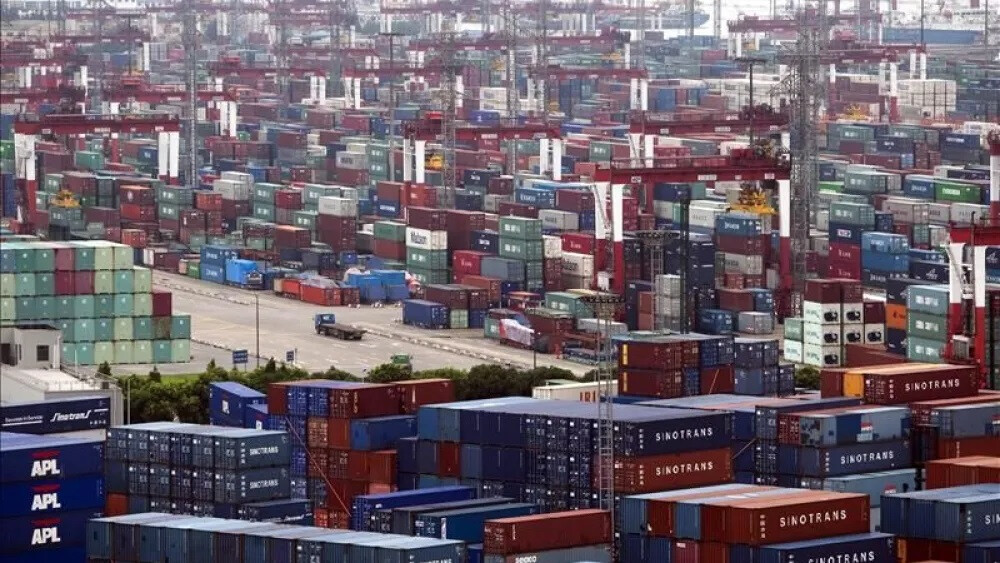
As of May 2025, Paraguay's imports from China increased by 10.1% compared to the same period last year. This is according to the latest foreign trade report released by the Central Bank of Paraguay (BCP), which confirms that China remains Paraguay's largest import partner, accounting for 35.8% of total imports, reaching US$2.4501 billion. This increase is interpreted as a significant indicator of the deepening economic ties with China amidst the reorganization of global supply chains.
Key Drivers of Increased Imports from China
The surge in imports from China is primarily attributed to the increased demand for high-tech products such as mobile phones, portable data processing devices, and electrical equipment and devices for specific uses. As the penetration of digital devices expands in the Paraguayan market and consumer preference for technology products grows, imports of Chinese electronic products, known for their price competitiveness and diverse product range, have surged. Notably, demand for personal electronic devices has gained further momentum with the increase in non-face-to-face activities since the COVID-19 pandemic.
The BCP report suggests that these product categories play a crucial role in accelerating Paraguay's digital transformation. China already serves as a global hub for electronic product manufacturing, and Paraguay is benefiting from this global supply chain. This not only involves product imports but also contributes to the expansion of Information and Communication Technology (ICT) infrastructure within Paraguay and enhances consumers' digital accessibility.
Trends in Major Importing Countries
Paraguay's imports are also sourced from various other countries, with distinctive items imported from each.
Brazil: As Paraguay's second-largest import partner, Brazil accounted for 22.3% of total imports, reaching US$1.5255 billion. This represents a 2.0% increase compared to the previous year, with significant imports of mineral or chemical fertilizers, malt beer, and yarns and cables. Brazil, as a neighboring country, leverages its geographical advantage to supply essential agricultural materials and consumer goods, playing a vital role. Particularly given Paraguay's agricultural-centric economy, fertilizer imports are crucial for maintaining agricultural productivity.
United States: The United States ranked as the third-largest import partner, accounting for 6.1% of total imports and reaching US$414.7 million. However, this marks a 12.2% decrease compared to the previous year, suggesting a potential reduction in imports of specific items or a shift to other suppliers. Key import items from the US include diesel, pharmaceuticals, and mineral or chemical fertilizers. Diesel is vital for meeting Paraguay's energy demands, and pharmaceuticals are essential for public health. The decrease in US imports could be attributed to a combination of factors, such as fluctuations in international oil prices, changes in Paraguay's energy policies, or diversification of pharmaceutical import sources.
Overall Import Trends and Economic Implications for Paraguay
Paraguay's total imports up to May 2025 reached US$7.0383 billion, an increase of 4.5% compared to the same period last year (US$6.7331 billion). Of this, formal imports (registered imports) accounted for US$6.8512 billion, making up 97.3% of total imports, a 5.4% increase year-on-year. This generally indicates a revitalization of economic activity in Paraguay, interpreted as a result of increased domestic demand and a rise in imports of intermediate goods necessary for industrial production.
While an increase in imports can negatively impact the trade balance in the short term, in the long term, it can be viewed as a positive sign of increased investment for economic growth and invigorated consumption. Particularly, the rise in imports of capital goods and intermediate goods directly relates to the expansion of future production capacity, potentially driving Paraguay's potential economic growth.
Conclusion and Future Outlook
Paraguay's increase in imports from China in May 2025 reconfirms China's dominant position in global supply chains, while also suggesting that Paraguay's economy is deepening its reliance on a specific country. The rise in Chinese imports, especially of high-tech products, reflects positive aspects such as Paraguay's accelerating digitalization and improved consumer purchasing power.
However, a high import dependency on a particular country can lead to economic vulnerability in the event of changes in international relations or supply chain instability. Therefore, the Paraguayan government should continue to explore policies for diversifying import sources and simultaneously strive to strengthen domestic industrial competitiveness to create import substitution effects. Furthermore, it is crucial to analyze import data in depth to understand the reasons for increases and decreases in specific product categories and to formulate tailored trade policies accordingly.
While the overall increase in imports signals vitality in the Paraguayan economy, strategic trade policies and a balanced development of industrial structure are essential for sustainable growth. Paraguay's future trade trends are expected to evolve in various ways, influenced by these policy efforts and changes in the global economic environment.
[Copyright (c) Global Economic Times. All Rights Reserved.]




























